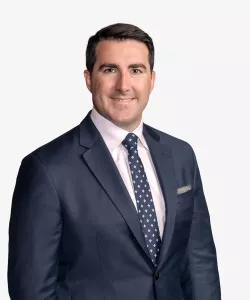"When It Comes To Corporate Crime, the DOJ Means Business"
Deputy Attorney General Lisa O. Monaco’s Keynote Address at ABA’s National Institute on White Collar Crime
Despite having been delivered virtually, Deputy Attorney General Monaco’s message to white collar counsel came in loud and clear: There’s a new sheriff in town. The Department will aggressively pursue all individuals who commit and profit from corporate misconduct “regardless of position, status, or seniority” and will insist upon a corporate “commitment to compliance programs and the appropriate culture to disincentivize criminal activity.”
Monaco’s remarks can be found here.
Monaco referenced the ebb and flow of enforcement that results from both internal and external factors and the evolution of what she called “the enforcement landscape,” signaling a shift towards tighter enforcement ahead. But before detailing the new policies, the Deputy Attorney General emphasized that enforcement actions are not inevitable — corporations and individuals can and should take steps to prevent and address malfeasance. Not doing so, she warned, could be costly.
The three new policy actions Monaco announced in her October 28 speech reveal the Department’s intent to take a broad and unblinking view of alleged corporate misconduct. First, for a corporation to be entitled to cooperation credit, it must provide the Department with all non-privileged information about any individuals involved in or responsible for the misconduct at issue—not just those the corporation deems to have been “substantially involved” in the misconduct. This marks a return to the “Yates Memo” guidance, incorporated into the Justice Manual (f/k/a the U.S. Attorney Manual) in November 2015 under then-Deputy Attorney General Sally Yates (see here), which was later revised to include the “substantially involved” standard under then-Deputy Attorney General Rod Rosenstein in November 2018 (see here and here). We can expect this change to be reflected in a forthcoming revision to Section 9-28.700 of the Justice Manual.
Second, the Department will not wear blinders when considering the appropriate resolution for a company under investigation. Monaco noted that between ten and twenty percent of recent major corporate criminal resolutions involve companies that had previously entered into resolutions with the DOJ, and she expressed a determination to crack down on companies with “a documented history of repeated corporate wrongdoing.” Monaco explained that “[t]aking the broader view of companies’ historical misconduct will harmonize the way we treat corporate and individual criminal histories, as well as ensure that we do not unnecessarily look past important history in evaluating the proper form of resolution.” Since 2008, Section 9-28.600 of the Justice Manual (see here) has permitted prosecutors to consider a corporation’s history of “similar conduct,” but Monaco stated that, “[g]oing forward, prosecutors will be directed to consider the full criminal, civil and regulatory record of any company when deciding what resolution is appropriate for a company that is subject or target of a criminal investigation.”
Third, the Department will not hesitate to require a monitor where there is reason not to trust that a company will keep its bargain under a deferred prosecution or non-prosecution agreement. Likely in reference to former AAG Brian Benczkowski’s 2018 memorandum regarding use of monitors in criminal cases (here), Monaco observed that, “In recent years, some have suggested that monitors would be the exception and not the rule. To the extent that prior Justice Department guidance suggested that monitorships are disfavored or are the exception, I am rescinding that guidance.”
Key takeaways for corporate clients in light of these new policies:
- Ensure your compliance programs are robust and effective;
- Consider past corporate wrongdoing as part of the risk analysis in deciding whether to self-disclose possible misconduct, and prepare to address all previous misconduct in resolving an investigation;
- Expect cooperation credit only if you produce all non-privileged information about all involved individuals’ conduct;
- If entering a DPA or NPA, prepare to demonstrate a commitment to compliance without oversight, or otherwise be ready for a corporate monitor to potentially be appointed; and
- Expect to see further policy refinements in the area of corporate criminal enforcement.
Deputy Attorney General Monaco explained that these changes are needed to address evolving criminal tactics and law enforcement techniques, which she described as changes “of degree, not of kind.” While it is true that these new policies do not require radical changes in corporate conduct, the degree of their impact can be significant once a corporation finds itself under the DOJ’s microscope.
For further information or assistance, please contact Cissy Jackson and Michael F. Dearington in Arent Fox’s Government Enforcement & White Collar practice group or the Arent Fox attorney who regularly handles your matters.
Contacts
- Related Practices

